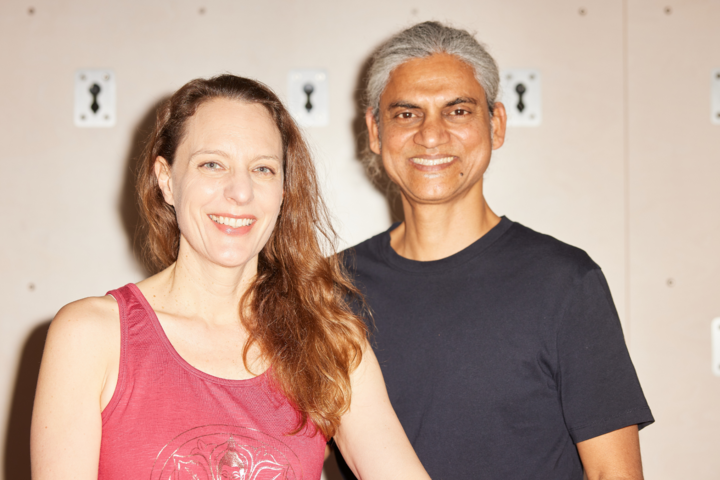Why we suffer: the five kleshas in yoga and their influence on our lives
Understanding and Overcoming Suffering: The Kleshas Explained in Yoga
Why do humans suffer? This question has been on our minds since the beginning of humanity. In yoga philosophy, we find an answer and a guide to escaping this suffering.
The article sheds light on the kleshas, five fundamental causes of suffering in yoga philosophy. These psychological obstacles influence our thinking and behavior and are deeply rooted in human nature.
Find out how understanding the kleshas can help you recognize and transform negative emotions, leading to more inner peace and clarity in your modern life.
The Kleshas According to the Yoga Sturas of Patanjali
A brief explanation of the individual kleshas
How can I use my knowledge of the kleshas in my modern life?
The Kleshas according to the Yoga Sturas of Patanjali
The Kleshas are found in the Yoga Sutras of Patanjali, a central text of Raja Yoga. They describe the five basic states of mind or “causes of suffering” that prevent us from feeling inner peace or calm.
In the Yoga Sutras, a total of 5 Kleshas are described that influence our perception, our thoughts and our actions. They are considered the sources of fear, ignorance and our negative feelings.
These 5 kleshas are:
- Avidya (ignorance, delusion)
- Asmita (egoism or false identification)
- Raga (attachment or desire)
- Dvesha (aversion or hatred)
- Abhinivesha (fear of death or urge to live)
A brief explanation of the individual kleshas
Avidya: (ignorance, delusion)
The wise Patanjali describes avidya as forgetting where we come from and what our true nature is – our Self, our soul. That we have forgotten that we are part of something much bigger.
Asmita: (egotism or false identification)
Because we cannot realize that we are part of a whole, we cling to our ego and the personality we have created.
We think we are only our body or our thoughts and emotions. We can only identify with that, because what remains when the body, thoughts and emotions are no longer there, is nothing? This thinking makes us egocentric and leads to a loss of connection with others.
Raga: (attachment or desire)
So as soon as we forget where we come from and only identify ourselves through our ego or personality, we naturally become attached to this ego or personality and all its identifications. We become attached to all the pleasant experiences that this ego has and find it difficult to let go.
It is this incessant search for happiness and fulfillment in external things that we all know so well. If we then cannot achieve or hold on to the desired happiness or fulfillment, it leads to suffering. Anything that binds us to the material world is ultimately impermanent and therefore carries the potential for suffering.
Dvesha: (dislike or hatred)
Dvesha is the aversion to unpleasant experiences or things we want to avoid. This attitude leads to suffering because we cannot always avoid unpleasant things and so we block them out mentally and fall into negative emotions.
Abhinivesha: (fear of death or urge to live)
Abhinivesha describes the deep-rooted fear of death and the clinging to life. This strong urge for survival goes hand in hand with the fear of the unknown and the desire to preserve life and everything you love. Even people with spiritual knowledge are not completely free of this fear.
It is interesting to note that the causes of suffering, known as kleshas in yoga, are also known in other traditions. Similar concepts can be found in Sufism and Christianity, but also in Taoism or Judaism and the ancient Greek philosophies, as well as in Zoroastrianism and in many indigenous and shamanic traditions.
How can I apply the knowledge of the kleshas in modern life?
The kleshas, taught thousands of years ago, describe universal, timeless psychological challenges that are still completely on target in modern life today.
It is about no longer being a victim of negative emotions and fixed ways of thinking, but actively cultivating a healthy, balanced and fulfilled state of mind.
In today's often hectic world, the teachings on the kleshas can thus bring us a piece of inner peace and clarity and help us to lead a conscious, meaningful life.
How do you put this knowledge into practice?
There are various ways to put this knowledge into practice.
In the Yoga Sutras, for example, Patanjali describes concrete steps that are helpful.
In our Alignment Yoga Teacher Training courses, we also devote a great deal of time to this topic and give participants various tasks that they can reflect on during the training and integrate into their practice.
A regular practice of gratitude is also important. Research in positive psychology, neuroscience and sociology confirms that grateful people are happier people.
Likewise, the help of a psychologist can be sought to recognize and dissolve old beliefs, thought patterns and imprints.
Conclusion
The kleshas are fundamental causes of human suffering described in yoga philosophy. They include ignorance, selfishness, attachment, aversion and the fear of death.
These timeless psychological patterns affect our thoughts and actions and lead to dissatisfaction and inner conflict. An understanding of the kleshas helps us to recognize and consciously transform negative emotions and unhealthy ways of thinking.
Practices such as gratitude, mindfulness and reflecting on our own thought patterns can help us to break free from inner blocks and find a balanced, fulfilled life.
Further articles that may interest you:
How to find more resilience and emotional stability with yoga

![[Translate to EN:] [Translate to EN:]](/fileadmin/_processed_/b/9/csm_2200_x_880_blog_klesha_b9647c7ab5.png)
